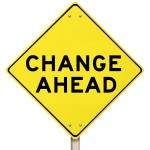
Widgetized Section
Go to Admin » Appearance » Widgets » and move Gabfire Widget: Social into that MastheadOverlay zone

Communicate More Effectively
Four ways to improve your communication skills
 How well do you communicate? Most of us think of communication as getting our message out through the spoken or written word. But, that’s only a small part of the process. Effective communication also means listening actively, understanding the nonverbal cues we send, dealing with criticism and knowing how to be taken seriously in the workplace.
How well do you communicate? Most of us think of communication as getting our message out through the spoken or written word. But, that’s only a small part of the process. Effective communication also means listening actively, understanding the nonverbal cues we send, dealing with criticism and knowing how to be taken seriously in the workplace.
While developing strong communication skills is a lifelong process, it’s easy to get started. Here are some suggestions from my seminar Communication Is A Two-Way Street:
Stop rehearsing
Recently, I came across an interesting quote, “No man would listen to you talk if he didn’t know it was his turn next.” While I don’t believe this entirely, there is probably a degree of truth to it.
Unfortunately, this means people often begin planning their response while the other person is still talking. How can we be listening if we are busy preparing our reply? The answer is we can’t. Next time, try gathering your thoughts after the other person has finished speaking.
Listen to the music
Speech is musical. When someone speaks listen to the music or tone of his or her voice. Do the words and tone agree? Think of the difference between a real and fake smile. When we smile our eyes sparkle and our face lights up. When we feign a smile only the corners of our mouth turn up. Big difference.
The next time you’re having a conversation pay attention to the music. If the words and tone don’t agree, you may be getting a mixed message.
Be More Assertive
Studies indicate that men’s speech is considered forceful and assertive, women’s speech polite and respectful. That’s one of the reasons men get taken more seriously in business. While there is a fine line between assertive and aggressive, you can walk it.
Try to eliminate qualifiers like “maybe” and “perhaps” from your conversation. Drop “tag questions” from the end of your statements. For example, instead of saying, “I think we should hire a new graphic designer, don’t you?” say “We should hire a new graphic designer.” Make a statement then bite your tongue. Adding tags like “don’t you?” at the end of a statement makes you seem uncertain and deferential.
Make Criticism Constructive
Dealing with criticism is tricky. When we’re criticized our first reaction is to be defensive. For example, when someone comments on your tardiness it’s easy to say “You were late last week.” But, a defensive response gets you nowhere. Better to acknowledge the truth, apologize and move on.
When someone criticizes you ask for specifics. “What didn’t you like about the report?” “What makes you think I’m not listening?” Asking for details often leads to a discussion that resolves the issue.
Developing strong communication skills takes time and practice. But, it’s well worth the effort. Because being able to communicate effectively is the single most important way to further your career.
About Annette Richmond, MA
Annette Richmond, MA, CARW, CCELW, is a Certified Resume Writer, Certified LinkedIn Profile Writer, and former recruiter. Her career advice has been featured by Huffington Post, The Chicago Tribune, Forbes, Business Insider, Monster, Vault, and WSJ. She helps motivated, senior level professionals tell their unique career story. She also serves as executive editor of career-intelligence.com.







You must be logged in to post a comment Login